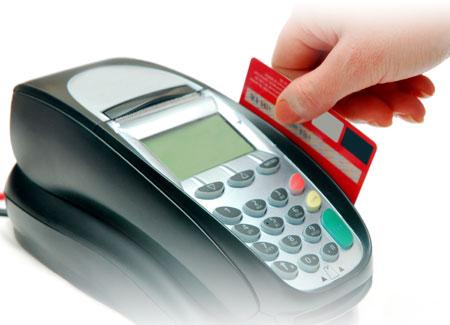 The high risk payment processing industry has one great advantage over the more mainstream parts of the scale: it is great fun to work with businesses that, for some reason or other, have been placed there. Over the years which we have spent working with high risk businesses, we have rarely had a case in which the latest applicant hasn’t given us a new challenge to grapple with. In fact, nowadays if a merchant seems “normal”, we immediately suspect that something is wrong and our paranoia typically turns out to be well-founded.
The high risk payment processing industry has one great advantage over the more mainstream parts of the scale: it is great fun to work with businesses that, for some reason or other, have been placed there. Over the years which we have spent working with high risk businesses, we have rarely had a case in which the latest applicant hasn’t given us a new challenge to grapple with. In fact, nowadays if a merchant seems “normal”, we immediately suspect that something is wrong and our paranoia typically turns out to be well-founded.
But a successful outcome of the application process (or even an unsuccessful one, when it comes to that), doesn’t put an end to the fun. Actually, it is precisely when a merchant account is fully set-up and our new client begins using it when we are on highest alert. And yes, this is no time for celebration — surprises at the start of a relationship with a new client can take many different forms and, coupled with the fun that comes along, they can promptly undo all the hard work we’ve done over the previous weeks or, in some cases, months.
For example, a merchant could begin taking credit card payments for things she never told us she would sell, or her average ticket amount would be several times as high as the one stated in the application form (which could indicate selling things which are different from the ones she told us about), or her volume could explode far and above what she was approved for, or, just the opposite, her volume could turn out to be much smaller than what she requested (and was approved) for. The list can go on, but you get the picture.
However, surviving the initial crisis, whether it does or does not make you stronger, certainly isn’t guarantee for a loving relationship in the long run, or even the medium run, for that matter. If you are not careful, you may quickly lose your merchant in a few months’ time, even if all works as it should. Let’s see why that is so.
What Does a Merchant Want?
From a high risk credit card processor’s perspective, virtually all qualified merchant account applicant needs a unique solution to be custom-built for her. For instance, two businesses may look the same on paper, but if they are incorporated in two different countries, we would probably need two different acquiring banks, which, in turn, would lead to different contract terms.
Alternatively, two businesses may be incorporated in the very same country and doing business in the same industry, but if their processing volumes or histories are substantially different, they could get very different terms, even if we use the same acquirer or we may once again need to use the services of different acquiring banks, which will once again lead to different terms. And these are two examples of pairs of businesses that have much in common!
By contrast, a merchant’s requirements never vary, regardless of the applicant’s location, type of business, processing volume, or anything else. A merchant always wants the lowest possible processing rate, a low reserve (or none at all, if she can get it), fast funding (next-day payout is, of course, everyone’s favorite) and high ceilings on processing volumes. Different merchants may prioritize these requirements differently, but you can always rely on them being on everyone’s list.
At the same time, the knowledge of a merchant’s priorities makes a payment processor’s job easier and anyway, there isn’t much about it that we can get wrong. The thing that is easy to forget, though, is that a merchant never quits looking for better terms, never. And processors forget this basic fact at their own peril.
In the Long Run…
In the high risk payment processing world, the long run is much shorter than elsewhere — in fact, it is not certain that such a concept even exists. But if it does, it must be the six-month period immediately following the merchant account set-up. Why six months and not, say, four or eight? Well, the thing is that high risk acquirers like to see six months’ worth of credit card processing statements when examining new applicants; otherwise, they are not likely to even consider the application.
That being the case, merchants with shorter or no processing histories at all find themselves at a great disadvantage and their biggest concern is just getting a merchant account, never mind the terms. Of course, well-capitalized start-ups with solid business plans and a team of seasoned executives will always get the merchant account they want, and on terms usually reserved for far more experienced businesses, but these are special cases. For the huge majority of the start-ups in the high-risk processing world, getting their first merchant account is an uphill battle, which many of them do not win. And the few that do make it through the application process typically end up getting less-than-rosy terms.
Now, from a payment processor’s perspective, it makes sense that a high risk start-up would get a higher discount rate and payouts delayed by a week — after all, that business is yet to prove that it can manage the inherent risks and not get inundated with chargebacks within the first three months of operation in an industry in which a high ratio of start-ups founder for that very reason.
Yet, however sensible the processor’s rationale may be, the odd start-up that will survive that initial stage will not forget the high discount rate even for a moment and will pounce on the first opportunity to get a lower one. A smart processor will review the merchant’s performance and offer better terms at around the six-month mark. Otherwise, the merchant will do the job on her own and find them elsewhere. The thing is that, at that time, armed with its six-month processing history, the merchant will be seen much less like a potential liability and more like a good business opportunity by prospective processors — the rules of the game will have changed completely.
To make matters worse for our first processor — the one that took on all the risk — the merchant now feels cheated that his current discount rate is a two or three percentage points higher than what he is now being offered. The end result, more often than not, is that the merchant signs up with another processor. Of course, the original processor may have prevented the defection if it had made a better proposal a month earlier and had explained why it could now offer better terms.
So, in the long run, all high risk merchant accounts are shut down, and not always by the payment processor. But it is in the interest of everyone involved that the relationship is made to last for as long as possible. For a payment processor, the loss of a successful newly-acquired business, which took weeks of hard work to approve and set-up is, naturally, painful. But sticking to its first processor holds certain advantages for the merchant, as well. The thing is that the longer the merchant’s processing history with a given processor, the bigger the risk that processor is likely to tolerate, should the merchant’s road get bumpy, as high risk roads always get, at least fro time to time. Than again, that is rarely a consideration for a merchant who feels cheated.
What Our Customers Are Saying
UniBul is ranked based on 159 user reviews.
UniBul enables American and international businesses to accept payments for the things they sell on their websites.
![]()

















